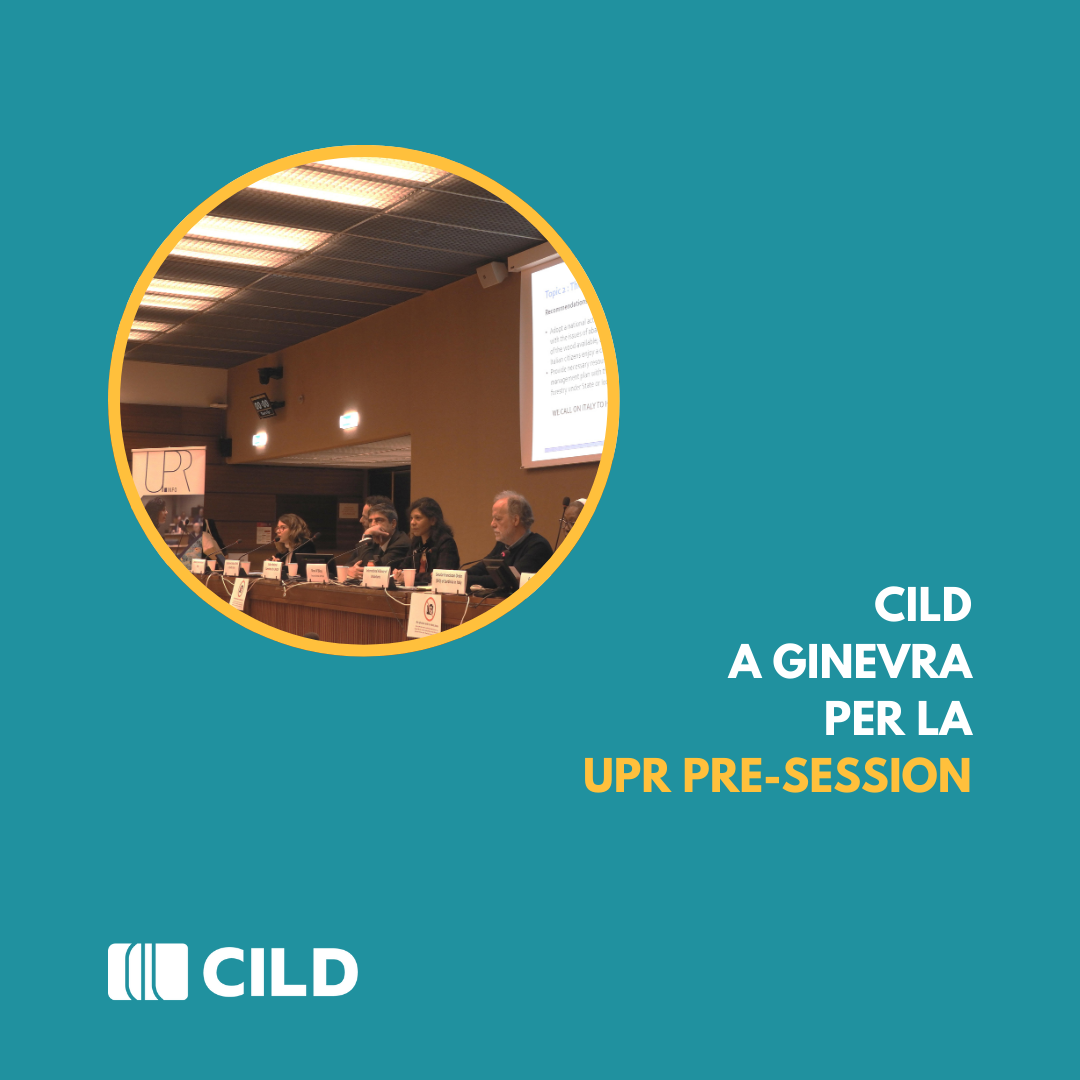CILD in Geneva for the UPR Pre-Session
– Sara Gherardi
During the 48th session of the Universal Periodic Review (UPR), the UN Human Rights Council will assess particular countries under review based on their human rights conditions. This review relies on reports submitted by various entities—governments or independent national institutions, civil society organisations, and dedicated Working Groups.
In July, CILD submitted its written contribution, prepared in collaboration with some of our coalition members, including Associazione Antigone, Associazione 21 luglio, Cittadinanzattiva, and Lunaria. Ahead of the official session scheduled for January 2025, CILD participated in a pre-session meeting organised by UPR Info. Held in Geneva from November 19 to 22, this event provided civil society organisations an opportunity to report observations on their country’s human rights status to the delegations responsible for making recommendations. Alongside CILD, participants included Amnesty International – Italy, Fondazione Pangea, the International Alliance of Inhabitants, the Italian National Committee for UNICEF, and the Secular Franciscan Order (SFO) of Sardinia.
Before the permanent delegations, CILD spoke on key human rights concerns in Italy, evaluating their progression in the implementation of recommendations received in 2019, on occasion of the last review. Our statement focused on three main points: migration and administrative detention; the criminalisation of civil society and shrinking civic space; and freedom of expression and media.
In 2019, over 60 recommendations were made regarding migration, which remains a critical issue in Italy. A lack of a cohesive legal framework on migration leads to human rights violations, including inadequate reception conditions. Recent policies have reduced the access to protection and increased administrative detention periods for migrants, raising concerns about asylum rights, the right to health, legal access, and monitoring within the facilities. Cooperation agreements with Libya and externalisation to Albania present legal and ethical challenges, including violations of non-refoulement obligations and EU laws.
CILD highlighted that despite recommendations, Italy continues to criminalise NGOs and human rights defenders. The 2023 Piantedosi Decree imposes high fines and restrictive measures on NGOs engaged in sea rescue operations, obstructing their work and assigning distant ports for disembarkation. Moreover, the civic space is threatened by the so-called Security Bill (Bill No. 1660), which criminalises peaceful protests. Additionally, Italy still lacks a National Human Rights Institution (NHRI) in line with the Paris Principles.
CILD also raised concerns about growing threats to journalists’ independence, through increased legal actions and physical attacks, especially when covering sensitive topics such as corruption and politics. Media freedom has declined, with Italy ranking 46th in the World Press Freedom Index due to increasing political interference and censorship in public service media. Defamation law reforms fail to align with the EU Anti-SLAPP Directive and are instead used to suppress dissent. New laws target activists and persons expressing dissent, fostering a hostile environment. International reports highlight systemic issues such as police violence and racial profiling, even during protests.
CILD urged the delegations present at the pre-session to advocate for the improved protection of human rights in Italy, particularly:
- Establishing a human rights-based reception system for migrants;
- Progressively dismantling migrant detention;
- Suspending agreements with Albania and Libya;
- Halting the criminalisation of civil society and the approval of Bill No. 1660;
- Establishing a National Human Rights Institution (NHRI);
- Protecting the right to protest and freedom of expression.
For more details, you can find the statement presented at the November 22 pre-session and the contribution prepared with CILD members.





